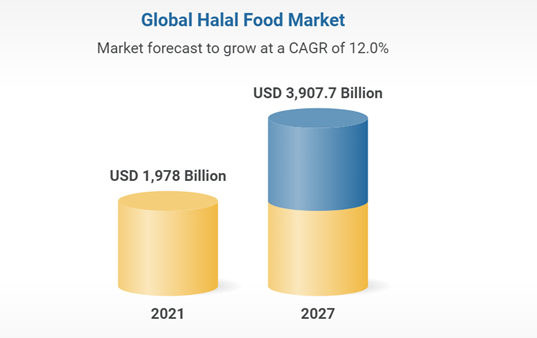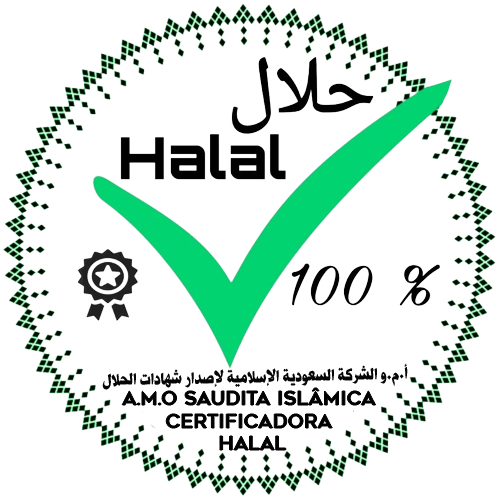Halal Certification
Halal Certification is the process of having a qualified independent third party supervise the production of consumables, proving that they were produced in conformity with the preparation and ingredient standards of the halal requirements.
Obtaining a halal certification means that the product, it’s ingredients that are used and on the manufacturing equipment used for production comply with the requirements of Islamic Shariah Law. All Muslim consumers and many other non-Muslim consumers base their purchase decisions around which products meet the halal requirements, and halal service providers may use the AMO logo on their products and advertising.

Halal Industry Overview
Certification gives Muslims in International Halal consumers’ peace of mind that one deserves whether they be a truly Halal.
Enables companies to reach over 2 billion halal consumers worldwide.
The global halal food market reached a value of US$ 1,978 billion in 2021. Looking forward, the market is projected to reach US$ 3,907.7 billion by 2027, exhibiting a CAGR of 11.24% during 2022-2027.

Market share percent
Halal Food on the Rise and the halal market continues to grow worldwide and is providing great opportunities for businesses in the industry.
Opportunities to tap a global Halal food market of about 2 billion people.
What does halal mean?
“Halal” comes from the Arabic “حلال” (Halal) and means ‘permitted’ or ‘lawful’. The Quran classifies food, goods and services in different categories such as “Halal” (permitted) or “Haram” (forbidden). The Halal when used in relation to food and other consumables means permissible for consumption and used by Muslims based on the Islamic law, which is the Shariah.
It is the obligation of a Muslim to ensure that any food consumed or any businesses performed in their daily lives are clean, hygienic and not detrimental to either their health or well-being simply Halal. Halal promotes cleanliness in all aspects of a person. It is the new benchmark for quality.
According to these guidelines gathered from the Qur’an, Muslim followers cannot consume the following:
pork or pork by products, animals that were dead prior to slaughtering, animals not slaughtered properly or not slaughtered in the name of Allah, blood and blood by products, alcohol, carnivorous animals, birds of prey, land animals without external ears
These prohibited foods and ingredients are called haram, meaning forbidden in Arabic.
The concept of Halal applies to a wide range of goods and services used in a Muslim’s daily life which have purity and cleanliness of the sources from which products are derived and the process by which they are made.
Certification Steps
Application Review and Confirmations
AMO team assesses suitability and confirms the halal status of the product
Evaluation Audit & Approval
AMO Halal approval is granted upon compliance of halal requirements conducts a halal audit of the premises
Technical Review and Certification Decision
The final stage is Technical Review and issuing of the Halal certificate
Certification Fees
Certification cost varies and depends on the size of the organization, number of HACCP plan, staff number, the nature and size of operations, product categories and the number of the products.
GET A QUOTE
